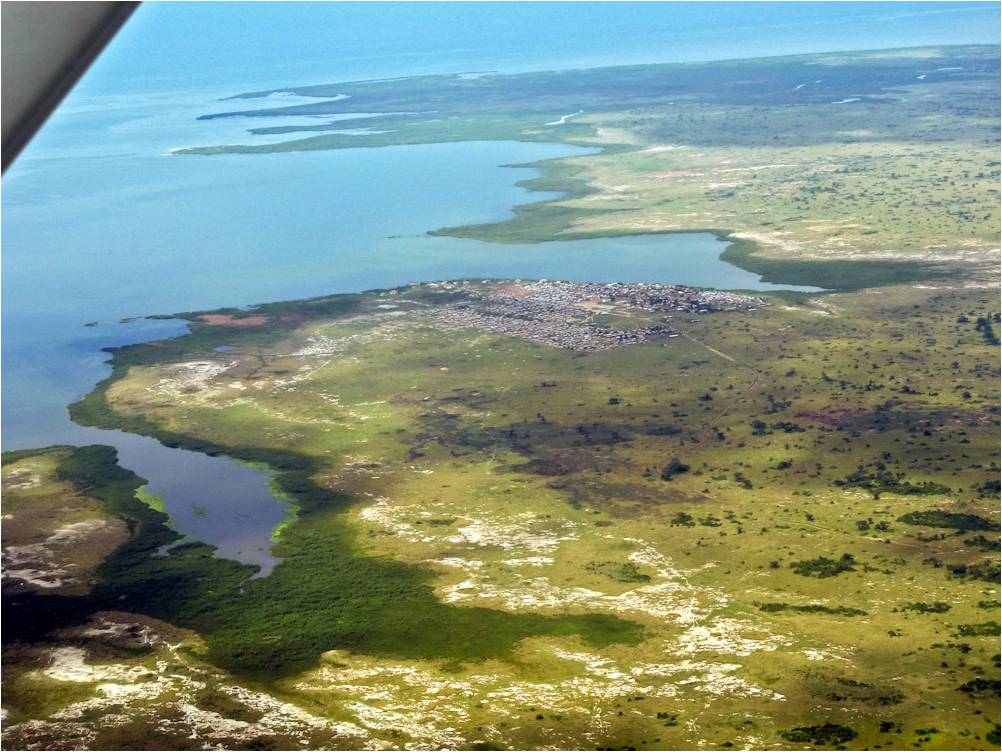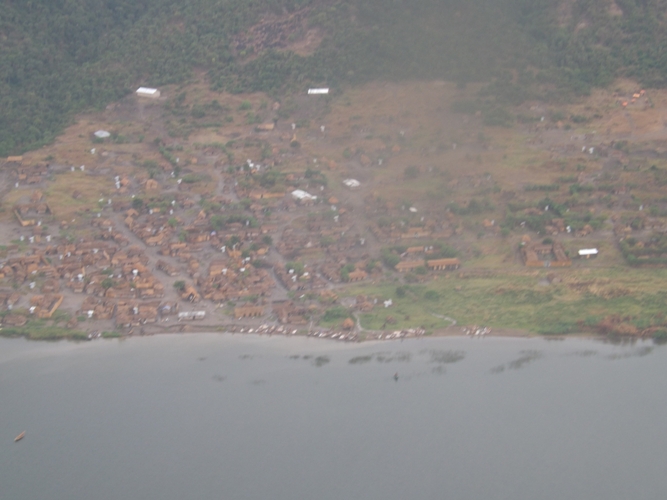Soco halts oil exploration in Virunga, Africa’s oldest national park
Ramsar calls for clear priority on wise and sustainable use of the site
The hunt for oil in Virunga National Park in the eastern Democratic Republic of Congo (DRC), is about to be halted. A joint statement from the UK-based oil and gas company Soco International and the Worldwide Fund for Nature (WWF) announced the stop, and also noted that both organisations look forward “to working responsibly with the Democratic Republic of Congo and its people to ensure that future development benefits both people and the environment”; an aim also strongly supported by the Ramsar Convention.
Soco made this major concession after WWF had filed a complaint that the company was violating guidelines on good business practice drawn up by the Organisation for Economic Cooperation and Development (OECD).
 |
| Lake Edward, in Virunga National Park |
Virunga was established in 1925 as Africa's very first national park and is both a UNESCO World Heritage Site and a Ramsar Site, the designation that marks a wetland of international importance.
The 7,800 square-kilometre National Park contains more bird, mammal and reptile species than any protected area on the African continent, including a thriving population of mountain gorillas. Virunga has suffered from the years of lawlessness and conflict between armed groups in the region, but is currently undergoing a revival. The park includes volcanoes, savannah and Lake Edward, which provides the fresh water upon which this biodiversity depends.
“Soco’s halt in oil exploration is very welcome news, but the bigger challenge for Virunga still lies ahead” notes Chris Briggs, the Secretary General of the Ramsar Convention on Wetlands. “More than 50,000 families in both the DRC and Uganda depend on Lake Edward for their livelihoods, food and drinking water, and the pressure to develop Virunga remains strong. We at Ramsar urge a solution that will preserve this unique set of integrated ecosystems for the long term, while providing sustainable livelihoods for local residents. And we look forward to working with the Congolese Institute for Nature Conservation (ICCN), the governments of the DRC and Uganda, UNESCO and the WWF to make a truly wise solution happen.”
 |
| Lake Edward |
Photo copyright: ICCN, Paul Ouedraogo